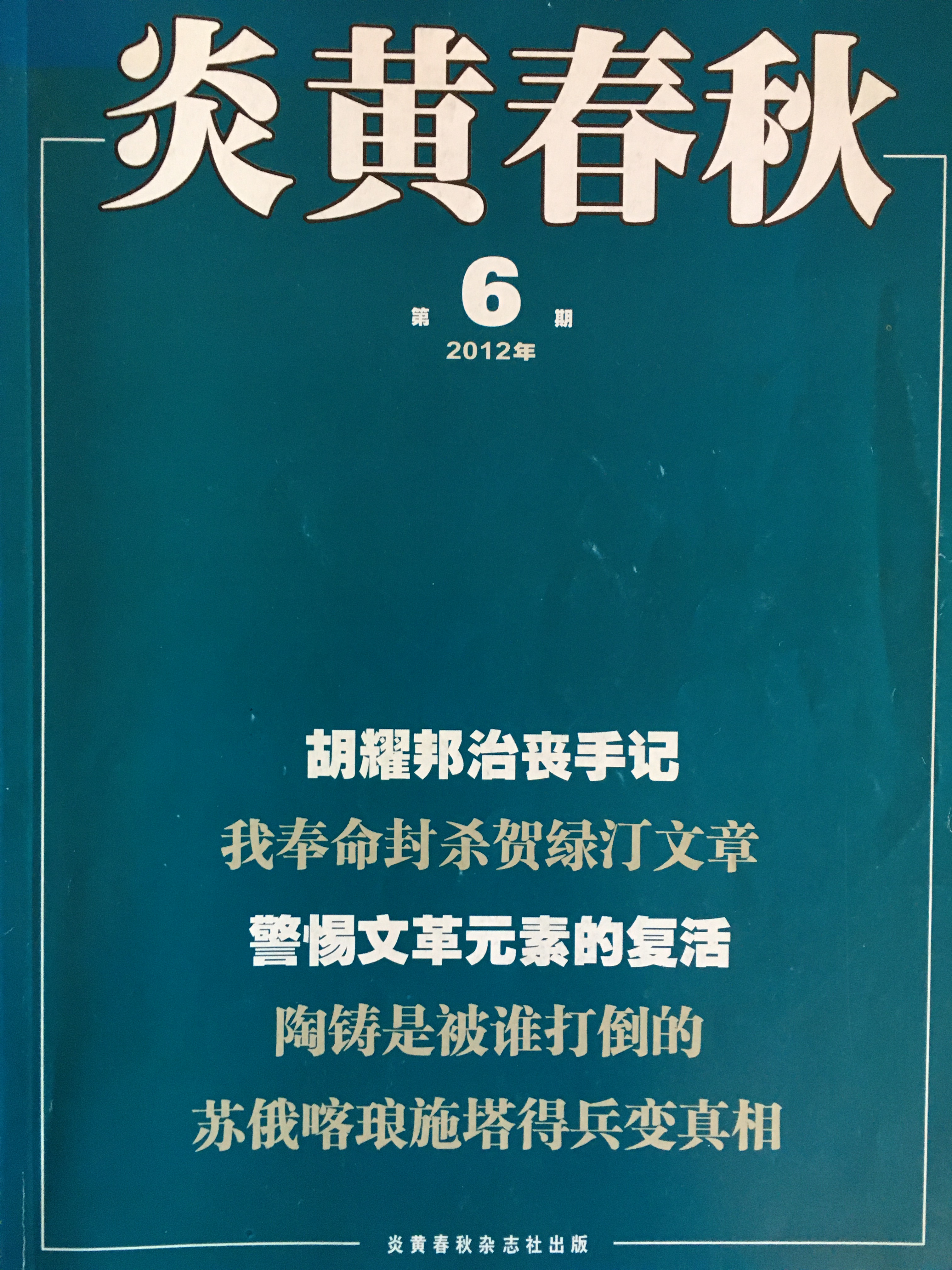
This article was originally presented as a paper held in a ground-breaking conference on “Transitional Justice without Transition” held at the University of Freiburg in 2019, as a follow-up to the Maoist Legacy Project. Puck Engman wrote up a thoughtful set of notes at the time. The volume edited by Daniel Leese and Amanda Shuman is titled Justice after Mao. The Politics of Historical Truth in the People’s Republic of China.
The full reference of my chapter is as follows:
“From Individual Guilt to Public Remorse. The “Confessions” (Chanhuilu) Column in the Journal Yanhuang Chunqiu,” in Daniel Leese and Amanda Shuman, eds., Justice after Mao. The Politics of Historical Truth in the People’s Republic of China, Cambridge University Press, 2023, p. 239-273.
Abstract:
This chapter explores the greater issue of moral responsibility for Mao-era injustices. Following a broader discussion that touches on intellectual debates beginning in the late 1980s, it focuses on a series of essays published in the semiofficial journal Yanhuang Chunqiu between 2008 and 2014 that provided a space for Chinese intellectuals to reconstruct alternative narratives of history. The term chanhui (“confess and repent”) provided a culturally significant and yet sufficiently flexible framework for a public discussion of individual guilt and atonement for acts of collective violence. The resulting Chanhuilu column represented a rare public forum accommodating both detailed narrations of events and public reflections on guilt, atonement, and justice. These authors not only took on the burden of individual guilt, but also shared historical knowledge that contextualized if not attenuated the perpetrators’ responsibility and sought the lenient judgment of later generations.
A pre-print copy of the chapter is available for download below:
